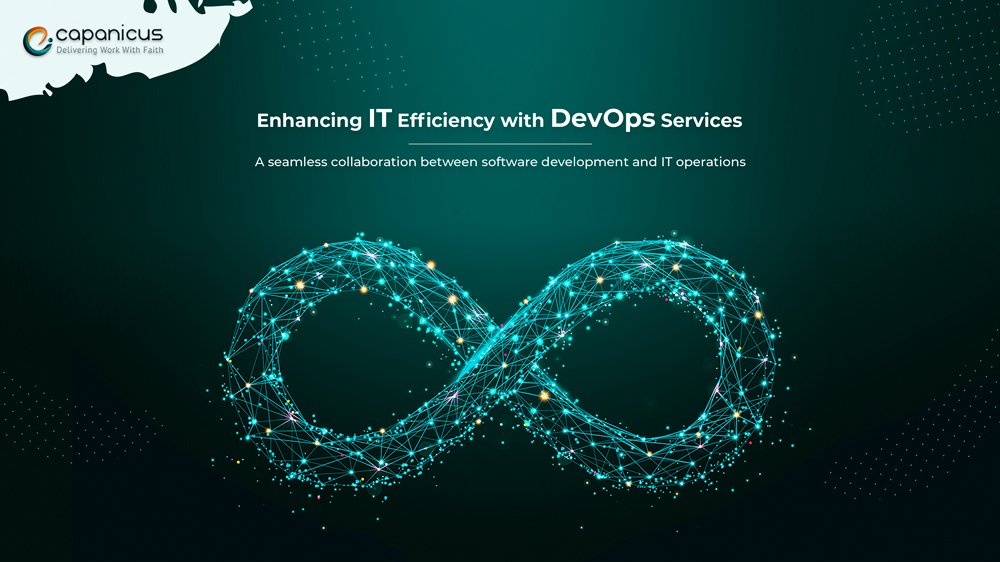DevOps Services, Development & Server Management: Enhancing IT Efficiency
In today’s rapidly changing digital landscape, businesses must keep pace to maintain their competitive edge. DevOps services play a crucial role in bridging the gap between development and operations by streamlining processes and improving collaboration. These services ensure that teams work efficiently, leading to faster delivery times and higher-quality software.
DevOps development focuses on integrating and automating various parts of an organization’s software development process. By fostering a culture of continuous integration and continuous deployment, teams can respond more swiftly to market demands and reduce the risks associated with deploying new features. This way, DevOps development helps companies optimize resources and maintain steady growth.
Server management is equally essential in the context of DevOps. It involves overseeing the infrastructure that supports software applications, ensuring they run smoothly and securely. With effective server management, organizations can handle increasing workloads without compromising on performance or security, thereby fostering user satisfaction and trust.
Understanding DevOps Concepts
DevOps fosters a collaborative environment between software development and IT operations. Its principles enhance efficiency in the software development lifecycle, emphasizing seamless transitions from integration to delivery.
Core Principles of DevOps
Collaboration and Communication: DevOps encourages breaking down silos, fostering close collaboration between developers and operations teams. This enhances understanding and speeds up problem-solving.
Automation: Essential for reducing manual errors and increasing efficiency, automation tools are integral. From code integration to deployment, automation streamlines processes.
Continuous Improvement: DevOps emphasizes iterative improvement through feedback loops. This approach minimizes risks and enhances product quality.
With roots in Agile methodologies, DevOps principles align with delivering consistent, high-quality software.
The DevOps Lifecycle: Continuous Integration to Delivery
Continuous Integration (CI): Helps developers integrate code changes frequently. Automated tests validate code quality, ensuring that new changes do not break the existing software.
Continuous Delivery (CD): Extends CI by automating the release process, enabling software to be released at any time. This decreases deployment time and increases release frequency.
The DevOps lifecycle supports the software development lifecycle by ensuring faster, reliable deployments through integrated tools and practices. These processes enhance collaboration across teams, driving efficient software development and release cycles.
DevOps Tools and Technologies
DevOps services rely on a number of key tools and technologies. These tools help automate tasks, manage infrastructure efficiently, and enhance collaboration between development and operations teams.
Popular DevOps Tools
DevOps professionals utilize a variety of popular tools to streamline processes. Jenkins is widely used for continuous integration and continuous deployment (CI/CD), automating repetitive tasks and accelerating delivery pipelines. Git and platforms like GitHub facilitate version control, enabling teams to track and manage code changes efficiently. Docker aids with containerization, ensuring that applications run consistently across different environments. Azure Pipelines offers cloud-based CI/CD that integrates smoothly with other Azure services.
Containerization and Orchestration
Containerization has transformed software development by encapsulating applications and their dependencies into containers. Docker is pivotal in this process, providing a way to run software reliably in different computing environments. Orchestration tools such as Kubernetes manage these containers, ensuring optimal resource utilization and scalability. Kubernetes automates the deployment, scaling, and operations of application containers. It allows for dynamic load balancing and rolling updates, improving application availability and consistency.
Source Control Management
Git stands as the backbone of source control management in DevOps practices. It offers a distributed version control system that allows multiple developers to work on a project simultaneously without conflict. Platforms like GitHub and GitLab extend Git’s capabilities with features for collaboration, code review, and project management. These platforms provide repositories hosted in the cloud, where branches can be managed, and changes can be tracked, facilitating seamless collaboration and continuous integration.
Integration and Deployment Automation
Automation is a key principle in DevOps. Tools like Jenkins and Azure Pipelines facilitate integration and deployment automation, which are crucial for ensuring rapid and error-free software delivery. Jenkins allows teams to implement CI/CD pipelines, thereby automating the build and deploy processes. Azure Pipelines supports multiple languages and enables continuous testing, making it a versatile choice for cloud environments. Both tools provide plugins and integrations with other services, enhancing their functionality and ease of use within DevOps workflows.
Cloud Services and Server Management
Cloud services have revolutionized server management by offering scalable, cost-effective solutions. Key considerations include the choice between on-premises and cloud-based services and how platforms like Azure DevOps fit into these environments.
On-Premises vs. Cloud-Based Solutions
On-premises solutions provide companies with full control over their servers and data, often preferred for sensitive information that requires high security. However, they involve significant upfront costs and ongoing maintenance.
Cloud-based solutions, on the other hand, offer flexibility and scalability. Platforms such as Azure provide robust DevOps services, enabling seamless integration and deployment. These services reduce the need for physical infrastructure, allowing businesses to focus more on development and less on server upkeep. Key benefits include cost savings, enhanced collaboration, and automatic updates.
Securing the DevOps Process
In the midst of rapid development, integrating security from the start is imperative. Robust security measures and continuous security practices through DevSecOps can significantly enhance the protection of IT infrastructures.
Implementing Robust Security Measures
For effective DevOps, implementing robust security measures is crucial. Organizations must adopt a proactive approach, embedding security early in the development cycle. This involves using automated testing tools that identify vulnerabilities as code is written. Security practices should include code analysis, penetration testing, and configuration management.
Access controls and encryption are essential components. Regular updates and patching ensure that software remains secure against known threats. Establishing a security baseline helps in maintaining consistent protection across different environments. Educating teams about security awareness is equally important to reduce the risk of human error.
DevSecOps and Continuous Security
DevSecOps integrates security into every phase of the DevOps lifecycle, promoting continuous security. By fostering collaboration between development, operations, and security teams, potential threats can be addressed swiftly. Automation plays a key role here, ensuring security tests are part of the development pipeline.
Continuous monitoring and feedback loops are vital for maintaining a security posture. Threat intelligence and logs are analyzed in real time to detect and respond to incidents promptly. This approach allows for adaptive security measures, ensuring the infrastructure evolves with emerging threats. Collaboration and automation streamline the process, making it more efficient and resilient.



